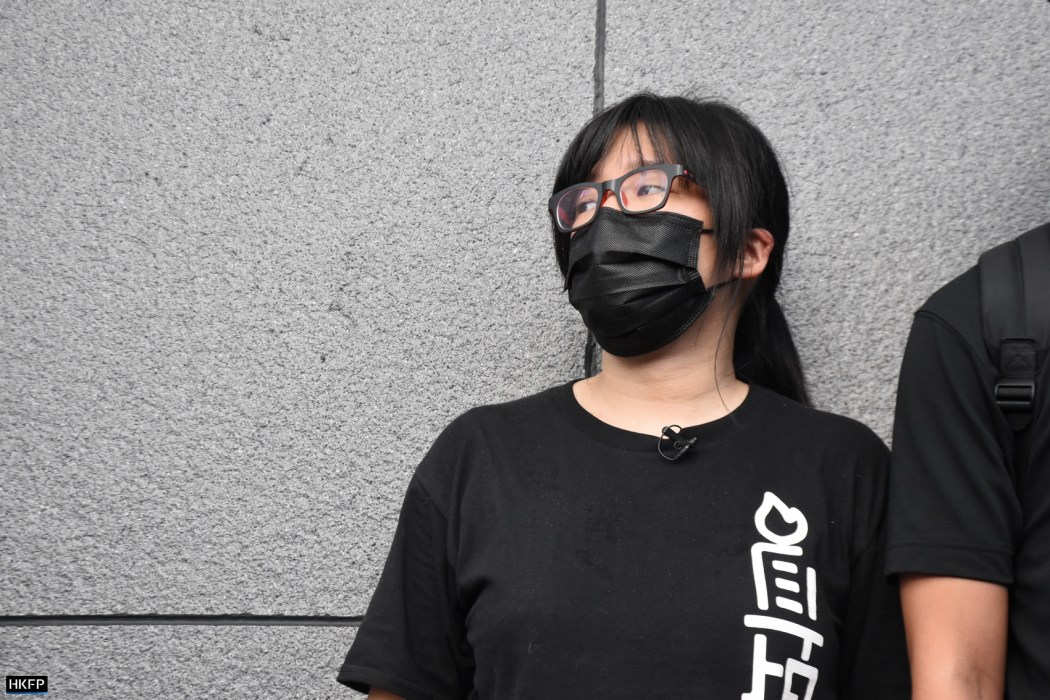Hong Kong authorities have not approved any demonstrations in three years because of Covid-19 health concerns, the city’s security chief has said.
Secretary for Security Chris Tang said in a recent interview with Commercial radio that Hongkongers’ freedom of assembly was protected by the Basic Law and the Beijing-imposed national security law.

The security chief also said he disagreed that people were less willing to express their views since the implementation of the sweeping legislation in June 2020.
“The [Covid-19] pandemic affected [approvals because of] certain health considerations. I believe we have continued to handle these applications in accordance with the law,” said Tang.
“Citizens can still express their opinions in accordance with the law, of course, [they] cannot do anything that is illegal.”
The national security law criminalised subversion, secession, collusion with foreign forces and terrorist acts, which were broadly defined to include disruption to transport and other infrastructure.
The move gave police sweeping new powers, alarming democrats, civil society groups and trade partners, as such laws have been used broadly to silence and punish dissidents in China. However, the authorities say it has restored stability and peace to the city.
Protests and rallies became rare during the Covid-19 pandemic and after the implementation of the security law. A number of public figures, including former pro-democracy lawmakers, have been charged with violating pandemic rules for holding protests.
Chow Hang-tung, ex-vice-chairperson of the Hong Kong Alliance in Support of Patriotic Democratic Movements of China, was convicted for inciting others to take part in an unauthorised assembly and was sentenced to 15 months in jail last year, after the police banned the 2021 Tiananmen vigil citing Covid-19 concerns.

However, Chow’s conviction was overturned by the High Court last month, after Judge Judianna Barnes ruled that the police did not fulfil their duty to consider whether there were other feasible measures that would have allowed or facilitated the gathering.
The Department of Justice had since been granted permission to appeal the case to the Court of Final Appeal.
In Hong Kong, organisers of any rallies over 50 people or protests of over 30 people must obtain obtain police approval for their event to go ahead, known as a letter of no objection, or they risk prosecution.
Article 23
Tang also said that the administration would enact the city’s own security law next year at the latest.

The issue of national security faced new challenges in the past year, the security chief said.
“Last year, US and UK intelligence agencies publicly said that they would strengthen intelligence gathering in Hong Kong and [China]. I believe that we have to take precautions,” said Tang.
“Our laws must make it unimaginable for people to commit crimes, such that they would not dare to do so. It is too late to punish them after the fact.”
Article 23 of the Basic Law stipulates that the Hong Kong government shall enact laws on its own to prohibit any act of treason, secession, sedition or subversion against the central government.
Clarification 2/2: This article has been updated to reflect that organisers said a Letter of No Objection was not obtained from police, as their protest is expected to be attended by under 30 people.
Support HKFP | Policies & Ethics | Error/typo? | Contact Us | Newsletter | Transparency & Annual Report | Apps
Help safeguard press freedom & keep HKFP free for all readers by supporting our team
























